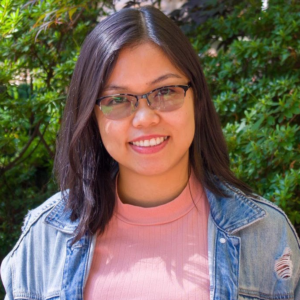
I was diagnosed with Graves’ disease nine years ago. Graves’ disease is an autoimmune disorder that makes one’s immune system or antibodies attack the thyroid and causes the thyroid to make more hormones than the body needs. Most mornings, I would wake up with cramps on both of my legs, unable to move while enduring the pain until it passes. My muscles were so weak that even opening bottled water seems to be an impossible task, and climbing stairs was a constant struggle. A year after my diagnosis, I moved from the Philippines to the United States, where I was able to receive proper treatment. By attending regular visits with my doctor, taking my medications, and changing my diet, I went into remission and got better. However, the thyroid-stimulating antibodies may return, causing Graves’ disease to relapse.
On March 12, the World Health Organization (WHO) announced the COVID-19 outbreak was a pandemic. With COVID-19 running rampant in the state of New York with over 37,000 confirmed cases and 385 deaths, I can’t help but worry that I might already carry the disease. According to the Centers for Disease Control Prevention (CDC), older adults and people who have severe underlying chronic medical conditions like heart or lung disease or diabetes seem to be at higher risk for developing more serious complications from COVID-19 illness. Potential COVID-19 symptoms include fever, cough, and shortness of breath.
As someone with compromised immunity, the risk of getting an infection is higher. I’m a second-year student at Columbia University, and before my school announced its cancellation of on-campus classes, I got sick and had to miss most of my classes during the week of February 24. I was advised by my doctor to stay at home and rest. I did not have a fever, although I had a cough and fatigue. Still, I was feeling okay when I returned to campus the following week with a little lingering cough. Two weeks after my visit to the Columbia Medical Center, I still have my cough, and now it has become worse. I still do not have a fever, but I started experiencing difficulty breathing and persistent pain in the chest whenever I cough. Alarmed, I contacted the nearest urgent care facility by my apartment and asked if I could get a test for COVID-19. They told me that the facility didn’t carry any testing kits and advised me to go directly to a hospital. I asked if I could get a COVID-19 test at Flushing Hospital, the closest hospital to my apartment, and they told me I could.
I went to Flushing Hospital emergency room and asked if I could get a test, but to my surprise, they told me that the hospital doesn’t perform tests for COVID-19 and even said that many people also went and asked to get tested. They advised me to call 311, New York City’s government hotline, where an agent could connect me to a health care provider and assist me in getting the test. However, even calling 311 was not helpful. While I waited to be connected to a health care provider, they hung up on me. Frustrated, I finally turned to my school’s medical service and was confident that I would get assisted.
I called Columbia Medical Center and was able to speak to a medical provider. I told them my symptoms and that I have an autoimmune disorder. I was disheartened when they said that testing for COVID-19 is limited to more severe cases and those needing hospitalization, and that I didn’t qualify for it. I was told that those who experience COVID-19 symptoms must assume that they have been exposed and act accordingly by staying at home, getting more rest, and basically riding out the disease.
It almost made me laugh because that’s what I have been doing for nearly two weeks. I wouldn’t have reached out if my symptoms hadn’t gotten worse. I wouldn’t have reached out if I wasn’t risking the health of my 81 year old aunt and my other three siblings whom I live with. But shouldn’t it be easier for the public to access health care in times of crisis? How come celebrities and officials can get tested for COVID-19, even when some of them don’t even have the symptoms?
My story mirrors many individuals’ experiences. In Los Angeles, the husband of a confirmed and deceased COVID-19 patient was not able to get tested as he didn’t show any symptoms at all; instead, he was only advised to self-quarantine for 14 days. My cousin, who is a nurse, has had symptoms of COVID-19 for two weeks now, yet is also not able to qualify for a COVID-19 test and still has to go to work.
I understand the limited resources at hand right now, as no one is fully prepared for a pandemic like this. But as a nation that prides itself on being one of the wealthiest countries in the world, it’s heartbreaking to see the lack of direction, guidance, transparency, and leadership in response to the coronavirus.
Paola Cruz is a junior at Columbia University and a member of Young Invincibles’ New York Young Advocates Program.
